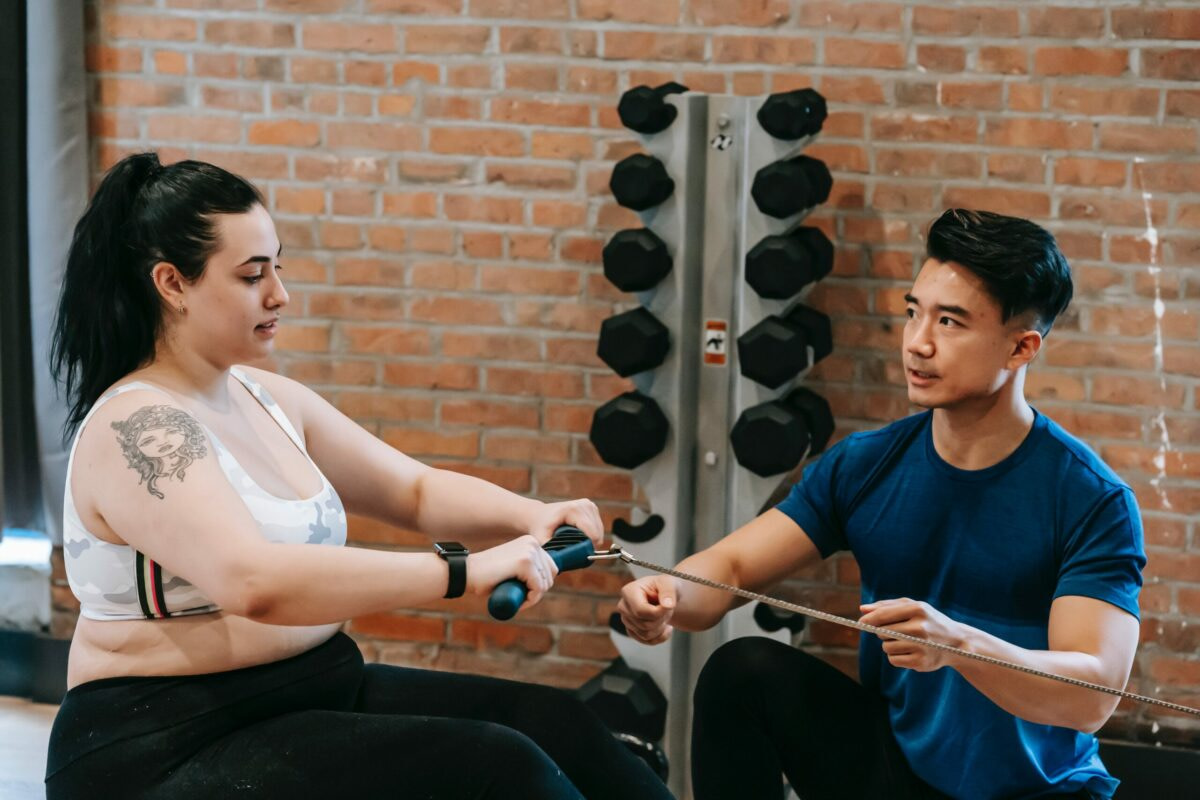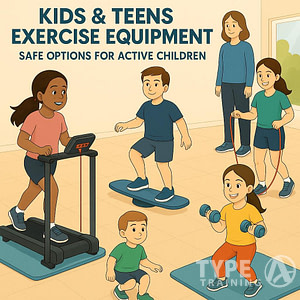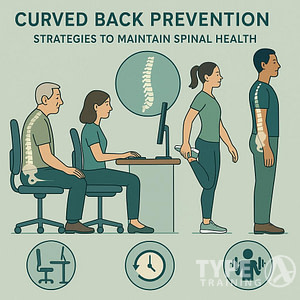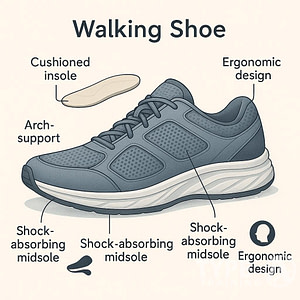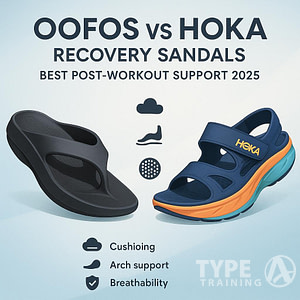Embarking on a fitness journey can be overwhelming, especially when it comes to finding the right personal trainer to guide you. The relationship you build with your trainer is crucial for staying motivated and achieving your fitness goals.
Asking the right questions can help you determine if a personal trainer is the right fit for you.
A well-informed decision starts with understanding what you need to know about their experience, approach, and methods.
To make the most out of your partnership, it’s essential to ask insightful questions that reveal their qualifications and compatibility with your needs.
Popular posts:
This article aims to equip you with the top 20 questions to ask, ensuring you choose a personal trainer who will help you succeed.
30 Essential Questions for Your Personal Trainer
Finding the right Questions to Ask a Personal Trainer is crucial for your fitness journey. To ensure a good match, it’s important to ask the right questions. This section covers essential inquiries that will help you understand the trainer’s qualifications, experience, and approach, allowing you to make an informed decision.
1) What qualifications do you have?
It’s important to know your personal trainer’s qualifications. Ask them about their certifications and where they received their training.
Reputable certifying bodies include NASM,
Some trainers may have specialized certifications. For example, they could be certified in strength training, weight loss, or injury rehabilitation.
Additionally, inquire about their educational background. Some personal trainers hold degrees in fields like exercise science or kinesiology. This can provide a deeper understanding of the body and fitness principles.
Check if they have continuing education credentials. The fitness industry evolves, and trainers need to stay updated.
Don’t forget to ask for proof of their certifications. A legitimate trainer will have documentation readily available. This ensures they meet the standards of the certifying organizations.
Lastly, consider asking how long they have been training clients. Experience is crucial in tailoring workouts to individual needs.
2) Are you certified?
Certification is crucial when selecting a personal trainer. Certified trainers have undergone rigorous education and testing. They possess knowledge about exercise science, nutrition, and safety protocols.
Ask your trainer about their certifications. Key certifications include those from the American Council on Exercise (ACE), the National Academy of Sports Medicine (NASM), and the International Sports Sciences Association (ISSA).
Certification ensures your trainer is qualified. It also means they stay current with industry standards and continuing education. Don’t hesitate to ask for proof of certification.
Some trainers may also hold specialized certifications. These can be in areas like strength training, sports conditioning, or rehabilitation. This can provide added value depending on your specific goals.
Ensure your trainer has relevant experience in addition to certification. Experience combined with recognized credentials can make a significant difference in achieving your fitness objectives.
Verification of a trainer’s credentials ensures you’re working with someone knowledgeable and professionally prepared. If a trainer can’t provide proof, it may be wise to continue your search.
3) How do you stay updated in the field?
Staying current in the fitness industry is crucial for providing effective training. Questions to Ask a Personal Trainer is how they keep themselves informed about the latest trends and advancements.
Your trainer might mention attending fitness conferences or workshops. These events are great opportunities to learn about new exercises, equipment, and techniques.
Reading industry publications can also be a valuable resource. Magazines and journals often feature studies and expert opinions on various fitness topics.
Another method is participating in webinars and online courses. These platforms offer convenient ways to gain knowledge without leaving home.
Some trainers connect with professional networks or associations. These communities provide support and share insights about recent developments in the field.
Listening to fitness podcasts or following reputable blogs can also help trainers stay informed. These mediums often discuss new trends and provide expert interviews.
Finally, using social media to follow fitness experts and organizations keeps trainers updated on the latest news and research.
For more details on this topic, see answers to how do you keep yourself updated and how to stay current with industry trends.
4) What equipment do you use?
Being aware of the equipment your trainer uses is crucial for matching their tools to your fitness goals. Many personal trainers rely on basic yet versatile equipment.
Items like kettlebells and resistance bands are commonly used for strength training exercises.
A kettlebell offers dynamic, full-body workouts, making it a popular choice.
Cardio tools such as jump ropes and treadmills can enhance your endurance training. If flexibility and mobility are a focus, trainers might incorporate yoga mats or foam rollers into your sessions.
Some trainers bring their own specialized gear. For instance, battle ropes, medicine balls, and TRX systems might be part of your routine.
Make sure to ask about the variety and quality of the equipment. It’s also beneficial to know if the trainer has backup options available.
Understanding the equipment used can give you a better sense of how your training sessions will be structured. This helps ensure that the trainer’s methods align with your fitness preferences and needs.
5) How do you incorporate flexibility training?
Flexibility training is key to a balanced fitness routine.
Start by including dynamic stretches in your warm-up to increase blood flow and prepare muscles for exercise.
During workouts, blend static stretches with other exercises. For example, stretching your hamstrings between sets of squats can improve flexibility and reduce muscle tightness.
Don’t forget the cool-down phase. Integrate gentle, static stretching to help with muscle recovery and prevent stiffness.
Stretch all major muscle groups, focusing on areas that are tight or sore.
Dedicate specific sessions to flexibility. Aim for at least one to two sessions a week focused solely on stretching exercises like yoga or Pilates.
These activities not only enhance flexibility but also improve balance and core strength.
Combine flexibility with strength and cardio training. Flexibility exercises complement other forms of exercise and can promote better performance and injury prevention.
By systematically integrating these strategies, you can create a well-rounded routine that enhances flexibility and supports your fitness goals. For more detailed guidance, check out this guide to flexibility training.
6) Can you provide client references?
Asking a personal trainer for client references is crucial. References offer an inside look at a trainer’s abilities and professionalism.
Client references can reveal how effective the trainer is in helping clients achieve their fitness goals. They provide firsthand accounts of the trainer’s approach and demeanor.
Speaking to former or current clients helps you understand what to expect. You can gauge whether the trainer’s style aligns with your preferences.
Additionally, positive references can build trust. They demonstrate that the trainer has a successful track record. References also show the trainer’s transparency and openness.
If a trainer hesitates to provide references, it could be a red flag. A professional trainer should be proud to share their success stories.
Gathering feedback from others who have been in your
Make sure to ask for contact details of at least two clients. This way, you can get a well-rounded view.
Always follow up on references. This step ensures you’re making an informed choice for your fitness journey.
Questions About Your Personal Trainer
Your personal trainer will play a significant role in your fitness journey, so it’s important to get to know them better. This section includes key questions to help you understand their training philosophy, customization of programs, and how they can address your specific needs and concerns.
7) What is your training philosophy?
Understanding your personal trainer’s training philosophy is crucial. This philosophy encompasses their core values, beliefs, and principles about fitness and health. It shapes the way they design programs, interact with clients, and motivate others.
A solid training philosophy can help you gauge whether their approach aligns with your goals and needs.
For instance, some trainers emphasize holistic wellness, integrating mental and physical health.
Others might focus on performance and athletic achievements. Knowing this helps you see if their methods will inspire and keep you motivated.
Ask them how their philosophy influences their day-to-day coaching.
Inquire about their methods for teaching, coaching, and motivating others. You want a trainer who can connect with you and create a positive and effective training environment.
Discuss the type of experience they aim to provide. Are they more about rigorous discipline, or do they value a supportive, encouraging atmosphere? The answer will help you decide if they are the right fit for you.
8) How do you customize programs?
Customizing a fitness program involves several key steps to ensure it meets your specific needs.
A personal trainer begins by asking questions about your fitness goals, health history, and previous injuries.
They assess your current fitness levels through various tests and measurements. This helps gauge your strengths and areas that need improvement. Trainers also consider your workout preferences, such as exercises you enjoy or equipment you prefer using.
A good trainer will also take into account your lifestyle, including factors like your work schedule, sleep patterns, and dietary habits.
Progress tracking is another critical element.
Trainers often use body measurements, weight tracking, and before-and-after photos to monitor improvements.
Regular adjustments to your program are essential. As you improve, trainers modify your exercises to continue challenging you. They may also adjust your routines if you encounter any new physical limitations or barriers.
Good communication is crucial.
Keeping an open line of communication ensures your program remains effective and aligned with your goals.
9) Do you have experience with injuries?
Having a trainer with experience in handling injuries is crucial for your safety and progress. Injuries can range from minor sprains to more severe issues that require careful attention.
Ask your trainer if they have experience working with clients who have had similar injuries. This ensures they understand the precautions and adaptations necessary for your specific condition.
A knowledgeable trainer should provide a detailed assessment of your injury history. They should be able to modify exercises to prevent aggravation of existing injuries and help you recover safely and effectively.
Verify if the trainer has relevant certifications or continuing education in injury management or rehabilitation. This can be a good indicator of their competence in this area.
Also, inquire about their approach to communicating with your healthcare providers. Collaboration between your trainer and medical professionals can significantly enhance your recovery process.
You might want to discuss their methods for tracking your progress and adjusting your program based on your injury status.
Ensuring your trainer has appropriate experience with injuries can provide the confidence and support needed to achieve your fitness objectives safely.
10) What kind of workouts do you specialize in?
When interviewing a personal trainer, it’s essential to understand their areas of specialization.
Different trainers focus on various types of workouts, so knowing their expertise can help you decide if they align with your fitness goals.
Some trainers specialize in strength training, focusing on building muscle and enhancing overall strength.
Others might have a background in weight loss programs, which are designed to help clients shed pounds effectively.
Injury rehabilitation is another area where trainers might specialize. These trainers have experience working with individuals recovering from injuries and tailoring workouts to aid in the recovery process.
If you have specific fitness goals, such as improving cardiovascular health or preparing for a competition, finding a trainer skilled in these areas is crucial.
Some trainers also offer expertise in flexibility and mobility, which can be beneficial for overall wellness.
Make sure to ask detailed questions about their experience and success stories in their specialized areas.
Whether you aim to gain muscle, lose weight, or recover from an injury, finding the right specialization ensures you get the most out of your training sessions.
11) Can you help with motivation?
A personal trainer’s role is not just to guide you through exercises but also to keep you motivated. Motivation is key in achieving fitness goals.
Ask your trainer how they plan to keep you motivated.
They might use regular progress tracking, personalized workout plans, or varied routines to maintain your interest.
It’s important to know if your trainer uses techniques like setting short-term goals, providing positive feedback, or incorporating fun activities.
These methods can help you stay engaged and enthusiastic about your fitness journey.
Ensuring that your trainer is aware of your personal motivations and can tailor their approach accordingly is crucial.
Whether it’s through a mix of encouragement, challenge, or accountability, their support should align with what drives you.
Questions About Personal Training Experience
Understanding your trainer’s experience can give you confidence in their ability to help you achieve your goals. This section features questions that delve into their background, success stories, and how they adapt their training methods to suit individual clients.
12) How long have you been a personal trainer?
Experience matters greatly when choosing a personal trainer.
Asking how long they have been in the profession can provide insight into their expertise and knowledge.
A trainer with several years of experience is likely to have encountered a variety of client needs and challenges. This can make them more adept at creating customized workout plans.
Additionally, more experienced trainers often have a deeper understanding of how to modify exercises for injuries or special conditions. It’s also beneficial to know if they have pursued continuing education, which can indicate their commitment to staying current in the field.
Experience often correlates with a trainer’s confidence in their abilities. A longer career can suggest they have successfully helped many clients achieve their fitness goals.
13) What is your success rate with clients?
Asking about a trainer’s success rate helps gauge their effectiveness. Success rates can indicate how well they help clients reach their goals.
It’s useful to ask for specifics, such as how many clients met their weight loss, strength, or fitness goals.
Success rates can be measured in various ways. Personal trainers might track progress through client testimonials, before-and-after photos, or performance metrics.
It’s important for trainers to provide examples or data that back up their claims.
Different clients have different goals. Clarify what “success” means in the context of your own fitness objectives.
A trainer’s past success with clients who have similar goals can be more relevant to your situation.
Client retention rates can also be an indicator of success. High retention rates often suggest that clients are satisfied and seeing results. Don’t hesitate to ask the trainer how long clients typically stay with them.
Understanding a trainer’s success rate helps ensure you’re choosing someone who can effectively guide you towards your fitness goals.
14) Have you worked with clients who have similar goals to mine?
Discussing a personal trainer’s past experience with clients who share similar objectives can provide valuable insight. This question helps determine if the trainer has the relevant expertise to guide you effectively.
If your goal is weight loss, ask if they have successfully helped others in the same journey. Specific examples can highlight their proficiency and methods.
For those aiming to build muscle, it’s important to know if the trainer has worked on similar bodybuilding or strength training programs. Their prior experience can indicate their understanding of effective muscle-building techniques.
Individuals focused on endurance, like marathon training, should inquire about the trainer’s experience with endurance athletes. Their knowledge of endurance-specific strategies can make a significant difference in your training.
If rehabilitation or overcoming an injury is your aim, ensure the trainer has a background in working with clients in recovery.
This experience is crucial for safe and effective rehabilitation training.
This inquiry ensures that the trainer is not only knowledgeable but also capable of adapting to your specific needs and goals.
15) How do you handle client feedback and adjustments to the program?
The way a personal trainer handles client feedback and program adjustments speaks volumes about their professionalism and adaptability.
A competent trainer listens attentively to client input and concerns.
They value feedback as an essential element in creating a personalized fitness journey.
When receiving feedback, trainers assess the information and make necessary program adjustments.
This might involve changing exercises, altering workout intensity, or adjusting the schedule to better fit the client’s needs and goals.
Flexibility is key.
A skilled trainer ensures that modifications align with the client’s evolving fitness level and preferences.
Regular check-ins can help address any issues early and keep the training program on track.
By integrating client feedback into their training methods, trainers foster trust and create a more effective and enjoyable experience.
Questions About Training Logistics
Logistics play a vital role in your training experience. This section outlines practical questions regarding scheduling, session expectations, cancellation policies, and pricing. Knowing these details can help you plan your training effectively and avoid any surprises.
16) What is your cancellation policy?
It’s crucial to ask your personal trainer about their cancellation policy before committing to sessions. A clear and fair cancellation policy helps both you and the trainer manage expectations and schedules.
Most trainers have a policy requiring a 24 to 48-hour notice for cancellations. This allows them to rearrange their schedule effectively, filling your spot with another client if possible.
You should also inquire about any fees associated with late cancellations or no-shows.
Some trainers may charge the full session fee if you cancel last-minute, while others may offer a partial refund or rescheduling options.
Additionally, ask if there are any exceptions to their policy, such as emergencies.
Knowing these details can help you avoid any unexpected charges and ensure a smooth training relationship.
17) How often do you recommend sessions?
The frequency of sessions with a personal trainer can vary based on your goals, fitness level, and availability.
Generally, trainers recommend starting with two to three sessions per week. This ensures consistency and allows for steady progress.
If you are just beginning your fitness journey, you might benefit from more frequent sessions. Three to four times a week can help you build a solid foundation and form proper habits.
For those focusing on specific goals like weight loss or strength training, the trainer might adjust the frequency.
Sometimes, more personalized attention is required to achieve these goals efficiently.
Trainers will also consider your schedule and personal commitments.
Balancing workouts with rest and recovery is crucial for avoiding burnout and injuries.
Some clients might prefer fewer sessions, complemented by independent workouts.
Discussing your unique situation with your trainer will help determine the optimal frequency.
Their expertise will guide you to find the best balance between enough training and necessary rest periods.
18) What should I bring to my sessions?
When attending your personal training sessions, wear comfortable, moisture-wicking workout clothes. This will help keep you cool and dry during your exercise routine.
Bring a water bottle to stay hydrated, as you might sweat a lot during intense workouts.
Pack a small towel to wipe off any sweat and keep yourself comfortable.
It’s helpful to have a notebook or a fitness app to track your progress and jot down notes or instructions provided by your trainer.
Don’t forget a pair of well-fitting athletic shoes that provide good support for various types of exercises.
If you have specific gear like weightlifting gloves or a heart rate monitor, bring those along to enhance your workout experience.
Your trainer may also recommend bringing resistance bands or a yoga mat based on your personalized training plan.
Lastly, carry any necessary medical items such as an inhaler or any first-aid supplies you might need. This ensures you’re prepared for any situation that could arise during your session.
19) What are your hourly rates?
Understanding your personal trainer’s hourly rates is essential for budget planning. Ask for a clear breakdown of costs.
Rates can vary widely based on the trainer’s experience, location, and specialization.
Some trainers might offer package deals for multiple sessions. This can be a more cost-effective option if you plan on working with them long-term. Always inquire about any discounts or promotions they might have.
Ensure that you also ask about any additional fees. Some trainers might charge extra for things like travel, personalized meal plans, or specialized equipment. Knowing these details upfront will help you avoid unexpected expenses.
It’s also a good idea to compare rates of different trainers in your area. This will give you a better idea of the typical cost and help you determine if a trainer’s rates are reasonable.
Finally, discuss payment methods. Some trainers accept only cash, while others may take credit cards or digital payments. Ensure the payment method is convenient for you.
For more insights, you can check out Enlightio’s guide on questions to ask a personal trainer.
20) Do you offer online training?
Asking if a personal trainer offers online training is crucial. Online training provides flexibility and convenience, allowing you to work out from anywhere.
Online personal training can include regular check-ins to ensure you stay motivated and on track with your fitness goals. This accountability can be a significant benefit if you struggle to maintain consistency.
Another advantage of online training is the elimination of the need to fit your workout schedule around gym hours. You can exercise at any time that suits you best.
Many online trainers provide tailored workout plans and meal plans. This customization can help you achieve specific fitness goals more efficiently.
Inquire about the technology and platforms they use for online sessions. Compatibility with your devices can make a big difference in your training experience.
Ask potential trainers about their pricing for online services. Rates typically range from $50 to $200 a month, providing various options depending on your budget.
Understanding these aspects of online training can help you decide if it’s the right option for your fitness journey.
21) What is the typical duration of each session?
The duration of each personal training session varies based on the trainer’s approach and the client’s goals.
Most sessions last between 45 to 60 minutes. This timeframe allows for a complete workout, including warm-up, exercise, and cool-down.
Some trainers offer shorter sessions, around 30 minutes, for clients with tight schedules or specific needs. These sessions can be just as effective if they are well-structured.
In certain situations, a trainer may recommend longer sessions.
Sessions lasting up to 90 minutes might be necessary for more intensive training or skill development.
It’s vital to discuss your availability and fitness goals with your trainer to determine the appropriate session length.
Regular communication with your personal trainer will ensure that the session duration aligns with your fitness journey and overall progress.
Questions About Tracking Your Fitness Progress
Monitoring your progress is essential to staying motivated and achieving your fitness goals. In this section, you’ll find questions that focus on how your trainer tracks and measures your progress, helping you understand the methods they use to keep you accountable and on track.
22) How do you track progress?
Tracking progress is crucial in any fitness journey. Ask your personal trainer which methods they use to monitor your improvements.
They might use physical assessments, such as measuring body fat percentage, muscle growth, or endurance levels.
Some trainers utilize technology, like fitness apps or wearable devices, to track your workouts and log your performance.
Regular check-ins and progress reports help ensure you stay on track.
A good trainer will review these results with you periodically, discussing any necessary adjustments to your training regimen.
Make sure to ask if they keep records of your progress and how often they will evaluate these metrics.
Your trainer should also consider subjective measures, like how you feel during and after workouts.
Understanding how your body is responding to the training is essential for making informed adjustments.
23) How do you monitor progress?
Monitoring progress is crucial to achieving your fitness goals. A personal trainer will likely use a variety of methods to keep track of your improvements.
Regular assessments are common. These may include body measurements, weight tracking, and fitness tests.
These metrics help in gauging how your body is responding to training.
Another key method is keeping a workout journal. This could be a physical notebook or a digital app where your exercises, sets, reps, and weights are recorded.
Reviewing this journal can reveal trends and highlight areas needing improvement.
Progress photos are also useful. Taking pictures at regular intervals can show visual changes that numbers might not fully capture.
Sometimes, seeing your own physical transformation provides a significant motivational boost.
Heart rate and other biometric data offer additional insights. Devices like fitness trackers or smartwatches can monitor your heart rate, calories burned, and even sleep patterns.
This data helps in fine-tuning your workouts to maximize effectiveness.
Feedback sessions with your trainer are essential. During these sessions, you discuss what’s working and what’s not.
Based on these discussions, you and your trainer can make adjustments to your training plan.
24) How do you handle plateaus?
Experiencing a plateau in your fitness journey can be frustrating. Plateaus occur when your progress slows or stops despite consistent effort. Your personal trainer should approach this challenge with a well-rounded strategy.
They might first assess your current workout routine. Stagnation can result from repeating the same exercises without variation.
Your trainer could suggest modifying your workouts to include new exercises or different intensity levels.
Nutrition also plays a crucial role. Inadequate nutrition can hinder progress.
Discuss dietary adjustments with your trainer to ensure you’re getting the necessary nutrients to support your goals.
Mental factors shouldn’t be overlooked. Stress, lack of motivation, or even negative self-perception can contribute to plateaus.
Your trainer might offer techniques to improve your mindset and maintain motivation.
Another approach involves rest and recovery. Overtraining can lead to plateaus.
Your trainer could recommend a short break or incorporating more rest days into your schedule.
Understanding how to handle plateaus can significantly impact your fitness journey. If you want to know more, check out this comprehensive guide on dealing with plateaus.
Discussing these strategies with your personal trainer can help you overcome plateaus and continue making progress toward your fitness goals.
25) What metrics do you use to measure success?
Personal trainers often utilize various metrics to track progress and ensure clients are on the right path.
Key performance indicators include body composition, strength levels, and cardiovascular fitness.
Body composition measurements help assess changes in fat and muscle percentages. Trainers often use tools like calipers, bioelectrical impedance devices, or DEXA scans to get accurate readings.
Strength levels are regularly evaluated through specific exercises. Trainers may track the amount of weight lifted, the number of repetitions completed, or improvements in form and technique.
Cardiovascular fitness is assessed using tests like the VO2 max, resting heart rate, and endurance activities. These metrics help gauge improvements in cardiovascular health and stamina.
Flexibility and mobility are another important aspect. Trainers often evaluate range of motion in various joints and conduct mobility drills to monitor progress.
Additionally, trainers may track subjective measures such as energy levels, sleep quality, and overall well-being.
These metrics provide insights into the client’s holistic health.
Consistency and adherence to the workout plan are also crucial metrics. Recording attendance and engagement helps trainers understand client commitment and make necessary adjustments.
26) How often will we review my progress together?
Regular progress reviews are crucial in any fitness journey.
It is recommended to schedule these reviews at least once every four weeks. This timeframe allows adequate time to see measurable changes while not being too long to lose track of goals.
Personal trainers may prefer more frequent reviews, such as bi-weekly sessions, for clients with specific targets.
This ensures any necessary adjustments to workouts or nutrition plans can be made promptly.
Weekly check-ins could be optimal for individuals aiming at rapid results or those requiring close supervision.
This can help maintain motivation and address any immediate concerns or difficulties encountered.
The frequency of progress reviews should be tailored based on individual needs and goals.
It’s essential to communicate openly with your personal trainer to determine the best schedule for tracking your progress effectively.
Questions About Nutrition
Nutrition is a key component of any fitness program. This section provides questions related to your trainer’s approach to diet and nutrition, including meal planning and dietary preferences. Understanding their nutritional guidance can enhance your overall health and support your fitness goals.
27) What is your approach to nutrition?
A personal trainer’s approach to nutrition is crucial for your success. Ask how they tailor nutritional advice to individual clients.
Personalized plans that consider your goals, dietary preferences, and any restrictions can make a big difference.
Ensure they emphasize balanced nutrition. They should encourage a diet rich in whole grains, lean proteins, healthy fats, and plenty of fruits and vegetables.
Inquire whether they provide meal plans or just general advice. Some trainers might work with nutritionists or dietitians to offer detailed plans.
Check if they consider behavior and lifestyle factors in their nutritional guidance. Effective trainers understand that habits, stress, and sleep impact food choices.
28) Can you provide meal planning guidance?
A personal trainer can offer valuable meal planning guidance to support fitness goals. They often provide tailored nutrition advice based on individual needs.
Meal planning helps track calorie intake, balance macronutrients, and ensures variety in the diet. It encourages healthier eating habits and aligns with fitness goals.
This guidance might include specific food recommendations, portion sizes, and timing of meals.
It can also help with meal prep strategies and overcoming dietary challenges.
Additionally, trainers can advise on hydration, supplements, and avoiding common nutritional pitfalls.
Their expertise can make the journey to better health more manageable and sustainable.
29) Do you have experience with specific diets (e.g., vegan, keto)?
A personal trainer’s knowledge of specific diets can significantly influence fitness goals.
Trainers with experience in vegan, keto, or other dietary patterns can provide tailored advice.
Understanding various diets ensures that the trainer can address unique nutritional needs.
For instance, vegan diets might require specific protein sources, while keto diets focus heavily on fat intake.
It’s important for trainers to stay informed about the latest research and dietary trends.
This knowledge helps them guide clients effectively, ensuring that dietary choices align with fitness objectives and health conditions.
Frequent discussions about diet can enhance the trainer-client relationship.
Open communication fosters mutual understanding and enables the creation of customized meal plans.
30) How do you help clients develop healthy eating habits?
Personal trainers assist clients in developing healthy eating habits by creating customized nutrition plans. These plans consider individual goals, dietary preferences, and any medical conditions. Each plan aims to balance macronutrients and include a variety of food groups.
Trainers also educate clients on reading nutrition labels and making informed food choices. They emphasize the importance of portion control and consistent meal timing. This guidance helps clients understand the impact of their daily food intake on their overall health.
Regular check-ins help maintain accountability. During these sessions, progress is reviewed, and adjustments to the diet plan can be made if necessary. Support and encouragement are key to ensuring clients stay on track towards achieving their nutrition goals.
Personal trainers often recommend keeping a food journal. This practice increases awareness of eating patterns and potential areas for improvement. It also serves as a tool for both the client and trainer to track progress and identify challenges.
Trainers also provide tips for healthy grocery shopping and meal preparation. Teaching clients how to prepare balanced meals at home fosters long-term healthy habits. They might also offer recipes and cooking techniques that make it easier to stick to the nutrition plan.
Why Asking the Right Questions Matters
Asking the right questions helps you build a solid relationship with your personal trainer and ensures that your training plan aligns with your specific needs and goals. This approach maximizes the effectiveness of your workouts and promotes long-term success.
Building Trust with Your Trainer
Building a trustworthy relationship is crucial. When you ask insightful questions, you demonstrate your commitment to your fitness journey and encourage your trainer to reciprocate with the same level of dedication.
For example, inquire about their qualifications and experience. Understanding their educational background and certifications, like asking, “What certifications and credentials do you have?” can instill confidence in their expertise.
Discussing their training philosophy and approach also gives you insight into whether they will be a good fit for your style and goals.
This transparency fosters a sense of mutual respect and reliability, which is essential for a productive trainer-client relationship.
Asking about their previous client experiences and outcomes can help you assess their ability to address your specific needs, such as weight loss or injury rehabilitation.
This information can make you more comfortable and confident in starting your training program.
Ensuring a Customized Training Plan
A customized training plan is key to achieving your personal fitness goals efficiently. Asking the right questions helps your trainer tailor the program to fit your unique needs, abilities, and limitations.
Begin with queries about your health history and fitness levels.
Questions like, “Do you have experience working with clients who have similar goals to mine?” or, “How will you adapt the training plan if my needs change?” ensure that the program acknowledges your current status and can evolve as you progress.
Dive into specifics such as dietary habits, stress levels, and workout preferences.
These details enable the trainer to craft a well-rounded plan that fits seamlessly into your lifestyle.
Discuss any potential challenges or barriers you might face.
Understanding how your trainer plans to help you overcome these obstacles will give you a clear picture of the support you will receive, thereby enhancing your chances of success.
Understanding Trainer Qualifications
When selecting a personal trainer, it’s crucial to verify their qualifications to ensure they possess the proper education and experience. This helps guarantee that they can design safe and effective workout plans tailored to your specific needs.
Certifications and Education
A reputable personal trainer should hold certifications from recognized organizations.
Notable certifying bodies include the National Academy of Sports Medicine (NASM), the American Council on Exercise (ACE), and the International Sports Sciences Association (ISSA).
These organizations ensure that trainers have a solid foundation in exercise science, nutrition, and client safety.
In addition to certifications, a degree in a related field, such as exercise physiology or kinesiology, can further demonstrate a trainer’s depth of knowledge.
Proof of ongoing education is also valuable, as it shows the trainer’s commitment to staying updated with the latest fitness research and techniques.
Don’t hesitate to ask for these details and verify their credibility before committing.
Experience with Specific Goals
Understanding a trainer’s expertise in helping clients achieve specific goals is just as important as their certifications.
If your goal is weight loss, inquire about their success with past clients who had similar objectives.
If you are training for a specific sport or event, ensure the trainer has relevant experience and a structured plan tailored to that goal.
Ask for examples or testimonials from previous clients to gauge their effectiveness.
Experience with diverse clients indicates a versatile skill set, which can be crucial for addressing unique fitness challenges.
Clarifying this aspect ensures that the trainer’s experience aligns with your personal fitness aspirations.
Influencers Vs. Fitness Professionals
Social media platforms like Instagram and TikTok have led to the rise of fitness influencers who offer workout plans, diet tips, and motivational content. These influencers often use visually appealing images and videos to attract followers and engage with them through interactive features.
Fitness Influencers:
- Content is usually quick and engaging.
- Focus on visual appeal and short videos.
- Often lack formal education in fitness.
- Prioritize follower engagement and trendiness.
Fitness professionals, on the other hand, usually have certifications from reputable institutions like the American College of Sports Medicine (ACSM), National Academy of Sports Medicine (NASM), or International Sports Sciences Association (ISSA).
- Fitness Professionals:
- Hold valid certifications.
- Undergo rigorous training and exams.
- Provide evidence-based advice.
- Focus on personalized plans and safety.
The gap between the two becomes evident when considering the potential risks of following misinformation.
Influencers sometimes promote extreme diets or untested supplements, leading to possible health issues or injuries.
In contrast, certified trainers base their programs on scientific evidence and individual needs.
To make an informed decision, verify the qualifications of the influencers and professionals you follow.
Look for those who emphasize sustainable practices and possess formal knowledge in fitness, ensuring that your fitness journey is both safe and effective.
Frequently Asked Questions
Understanding your personal trainer’s qualifications, training philosophy, and approach to tracking progress and nutrition is crucial. These specifics can help ensure you get the most out of your fitness journey.
What certifications do you have as a personal trainer?
Ask about the credentials and certifications your trainer holds.
This may include certifications from reputable organizations such as NASM,
Knowing their qualifications helps to ensure you’re receiving guidance from a knowledgeable professional.
Can you provide detailed information on your training philosophy?
Understanding your trainer’s overall approach to fitness is key.
This question reveals how they tailor programs to individual needs, their stance on various training methods, and how they plan to help you achieve your goals.
What is your approach to nutrition and diet in relation to fitness goals?
A comprehensive fitness plan often includes dietary guidance. Your trainer should have sound advice on how your diet can complement your exercise routine.
They may provide general nutrition tips or collaborate with a dietitian.
How do you track and measure client progress?
Good trainers regularly monitor client progress through various metrics.
This may include body measurements, progress photos, performance assessments, and fitness tests.
Knowing this will help you stay motivated and see tangible results.
Can you customize a workout plan to fit my specific needs and goals?
It’s essential that training programs are tailored to fit your unique needs.
Inquire about their ability to modify exercises, adjust intensity, and create a plan that aligns specifically with your fitness goals, whether they are weight loss, strength gain, or injury rehabilitation.
What methods do you use to stay updated with the latest fitness research and techniques?
Ask how your trainer continues their education. They could attend workshops, pursue further certifications, read fitness journals, or participate in online courses. Continuous learning ensures they are providing up-to-date and effective training methods.
Asking these questions ensures alignment between your goals and your trainer’s expertise, leading to a more effective and satisfactory training experience.




